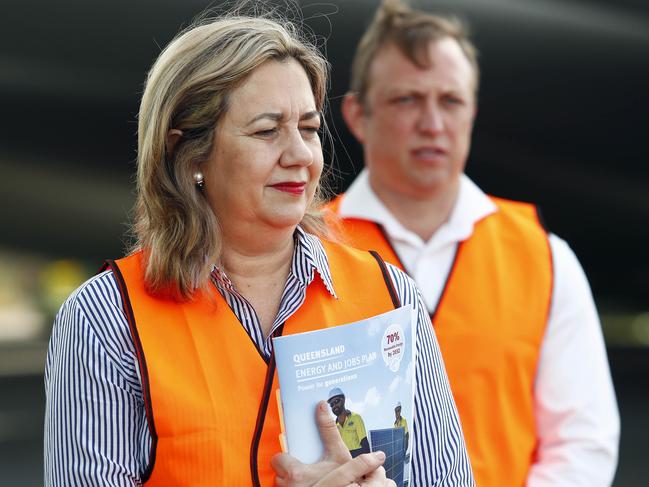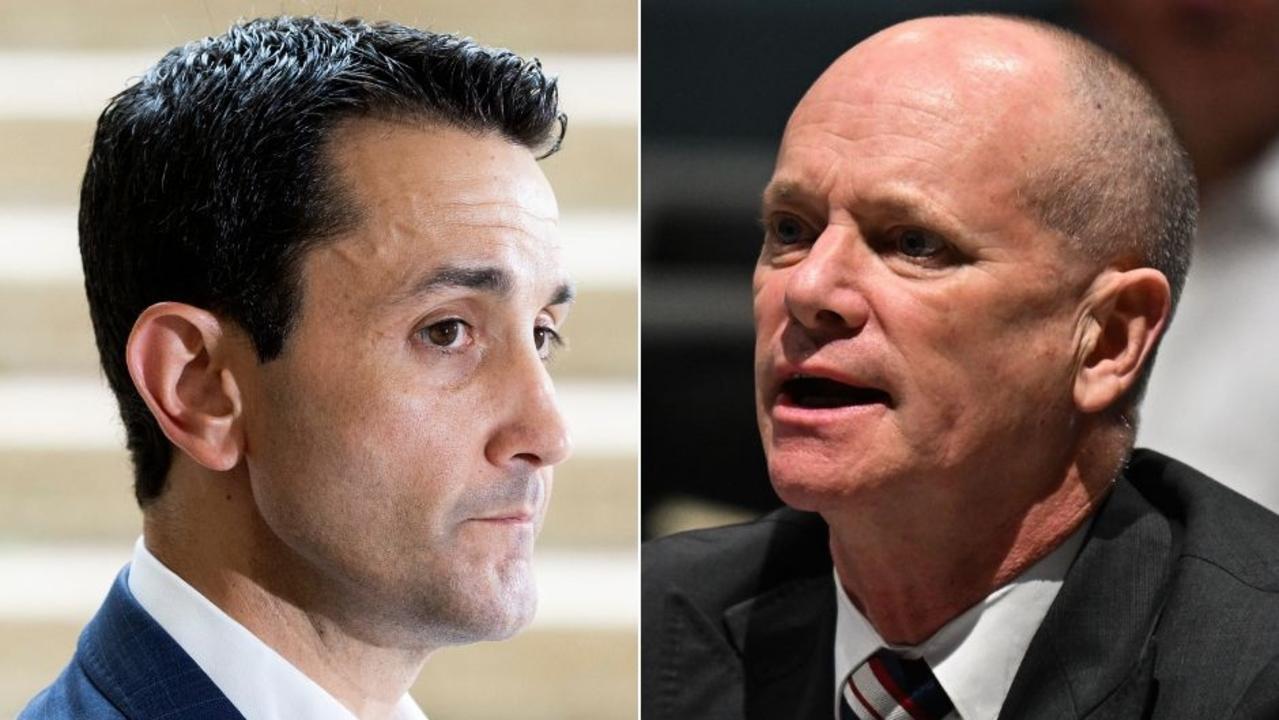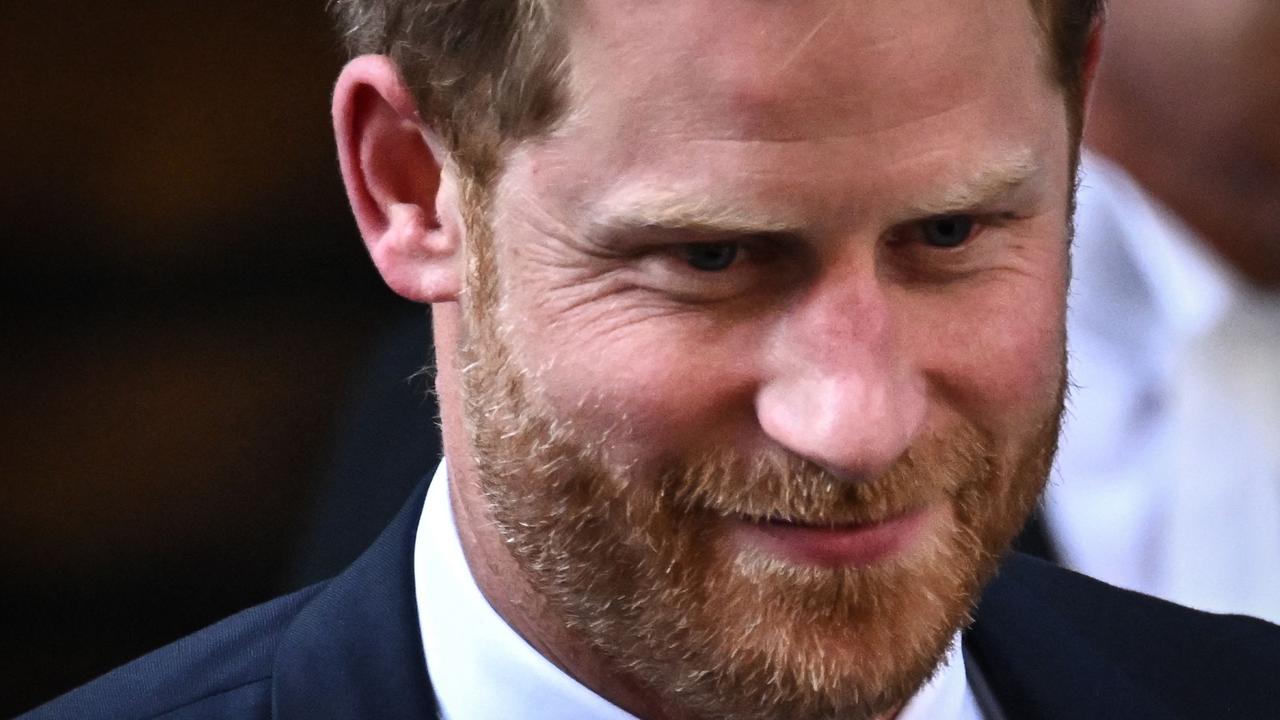Editorial: Brisbane 2032 Games infrastructure body a missed chance
Putting aside the spin, the only conclusion you can draw from Premier Annastacia’s latest move is that everyone else can just get their hands off her Games, writes the editor.

Opinion
Don't miss out on the headlines from Opinion. Followed categories will be added to My News.
The original vision for the Brisbane 2032 Co-ordination Authority that has now been quietly shelved by the state government in favour of an in-house operation in the Premier’s office was a hugely significant one.
In broad terms, the bid team saw it as an agency on level pegging with the Organising Committee – with the OCOG on the hook for the Games themselves, and the OCA responsible for “legacy oversight and, where required, delivery”. That is, everything other than the event.
Time and again in the reams of pages submitted to the International Olympic Committee by the bid team (a group overseen by the Palaszczuk government) in the months leading up to the bid, the OCA is referenced.
To be established within five months of the successful bid (and so at the end of 2021), the OCA was to have had representatives of all three levels of government so as to ensure it had “the capacity to co-ordinate the activities of all ... government departments and agencies”.
Its key role was to have related to ongoing assurance “in respect of all Games-related infrastructure delivery to ensure Games requirements are prioritised and consistent with infrastructure funding decisions and agreements between state and Commonwealth governments”. It was to develop an annual reporting system to keep watch over the way the three levels of government were delivering to the legacy plan. It would set “specific quantifiable targets alongside appropriate quality measures”, and work closely with the Paralympic Games Directorate on the same.
The formal response to the IOC’s Future Host Commission just weeks out of the successful vote went into detail about the importance of the body.

The submission concluded: “This shared governance model (for the OCA) will ensure public authorities have full oversight of all Games projects – from the planning, scoping and design phase through to contracting, construction and delivery.” In other words, its establishment was central to the bid.
But apparently now it is no longer necessary, at least as a stand-alone agency – with a team responsible for co-ordination to now be established inside the Premier’s department and another watching infrastructure in Deputy Premier Steven Miles’s Department of State Development.
The reason? Mr Miles says the government delivers infrastructure “all the time” and the OCA would just be another layer of bureaucracy.
The government has also enlisted Australian Olympics supremo John Coates – the mastermind behind Brisbane’s bid – to back in the new position. Mr Coates says there is no need for an OCA “at this time”.
It is all a good sell. The last thing voters want is more “bureaucracy”. But it is also all missing the point.
As is made clear repeatedly in the bid team’s formal submissions to the IOC through early 2021, legacy considerations such as better transport options and the chance to use the Games to deliver on better engagement with our First Nations people were at the heart of the bid in the first place – and the OCA was to have been solely responsible for delivering on these outcomes.
Instead, a few public servants from the departments led by the Premier and Mr Miles will be redirected to the task.
Putting aside the spin, the only conclusion you can draw from all of this is that the Premier has decided that everyone else can just get their hands off her Games.
SUBS PURCHASE THE RIGHT MOVE
The federal government’s decision to buy up to five nuclear-powered submarines from the US is an important step forward for the defence of our island nation.
Just days before Prime Minister Anthony Albanese heads to the US for the announcement of AUKUS agreement details, leaks have revealed Australia will purchase three Virginia-class nuclear submarines by the early 2030s with an option for two more.
One of the main criticisms of the AUKUS agreement and the desire to produce a British-designed submarine with US weapons in South Australia, has been the long timeline before production can begin.
The purchase of off-the-shelf US submarines will go a long way to address this problem and the looming “capability gap” created by the retirement of the troubled Collins-class boats.
Keeping jobs and defence production skills in Australia is an important consideration, but with an increasingly assertive China on our doorstep, having a strong maritime deterrent has to be the top priority.
Responsibility for election comment is taken by Chris Jones, corner of Mayne Rd & Campbell St, Bowen Hills, Qld 4006. Printed and published by NEWSQUEENSLAND (ACN 009 661 778). Contact details here




